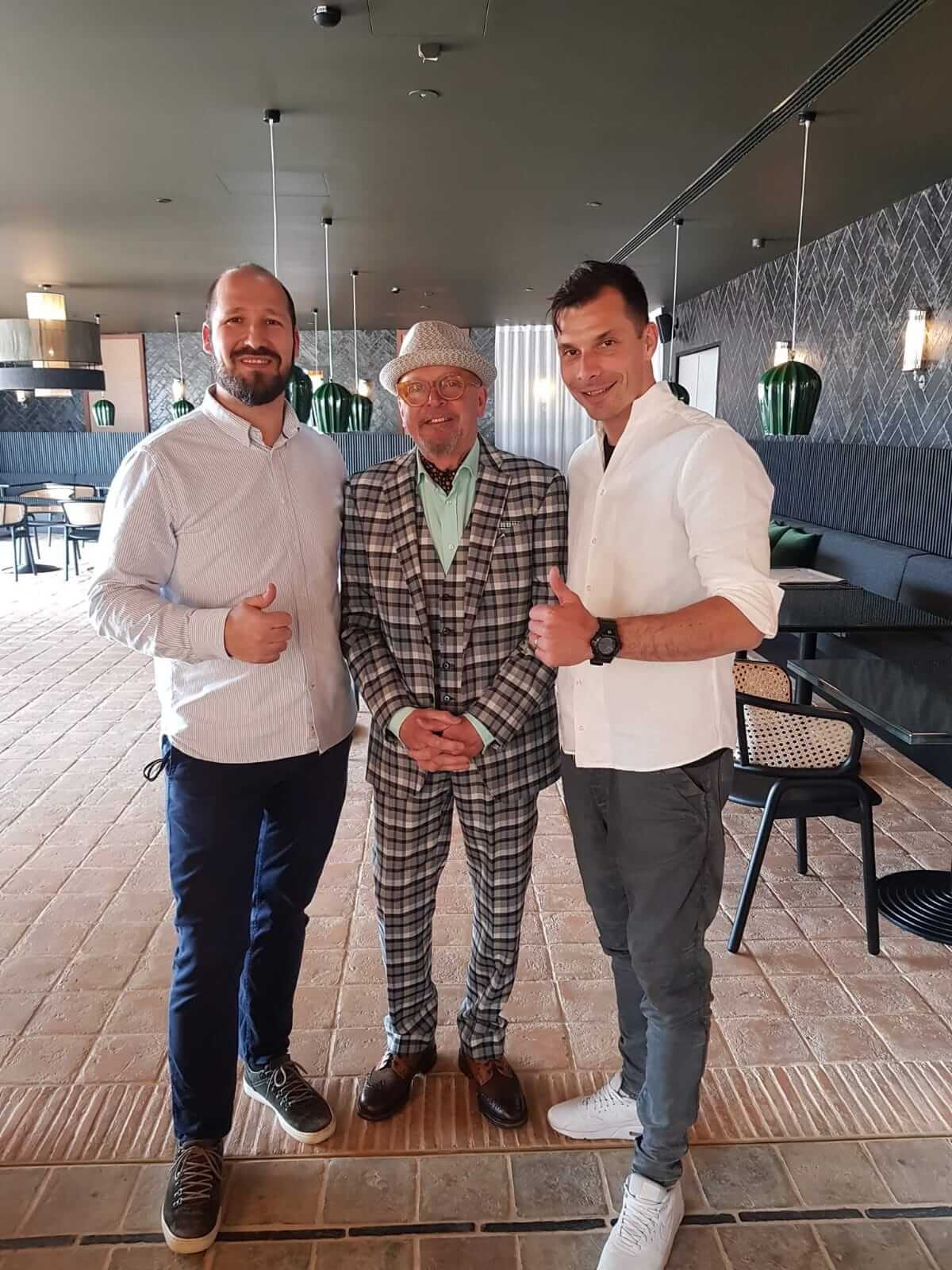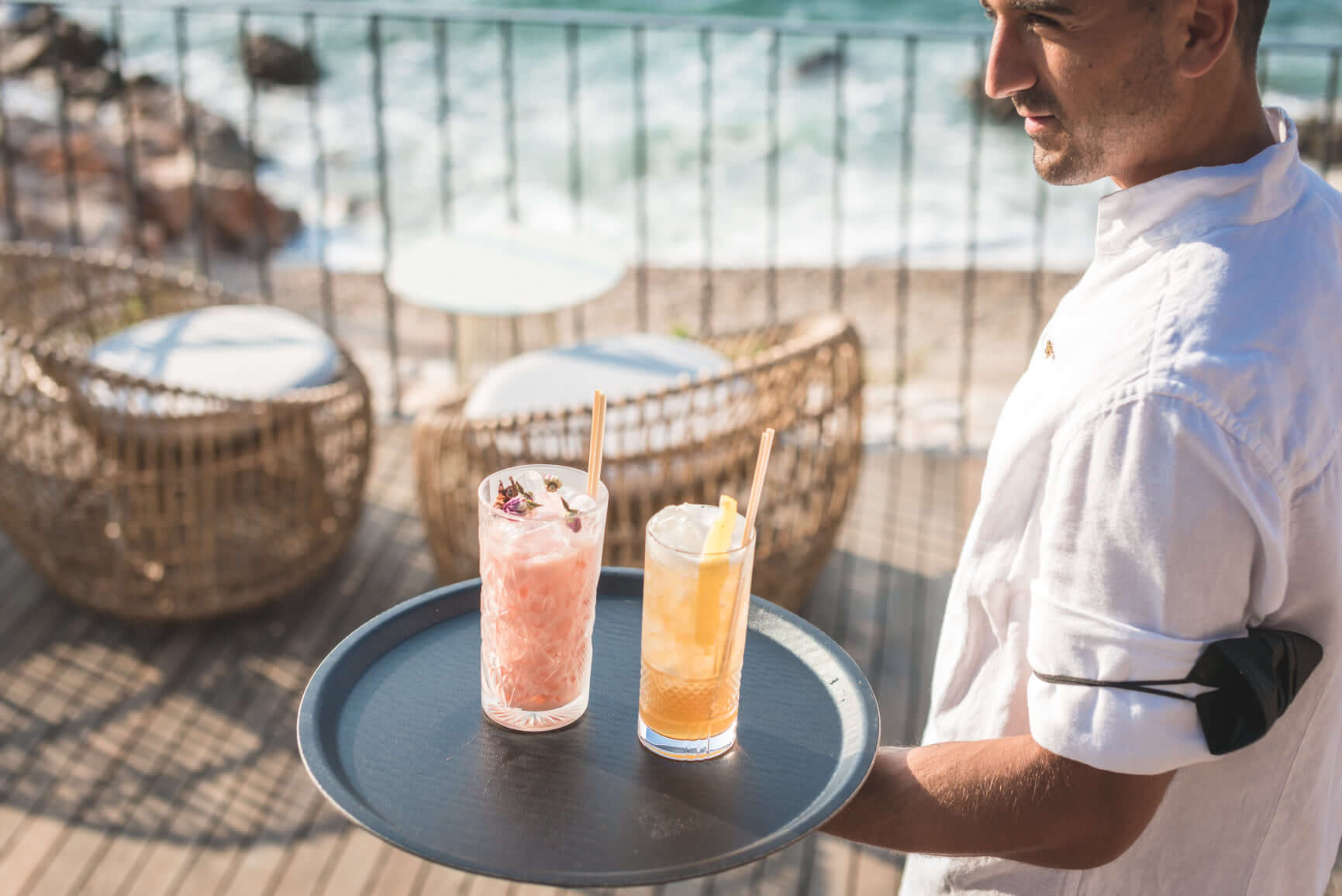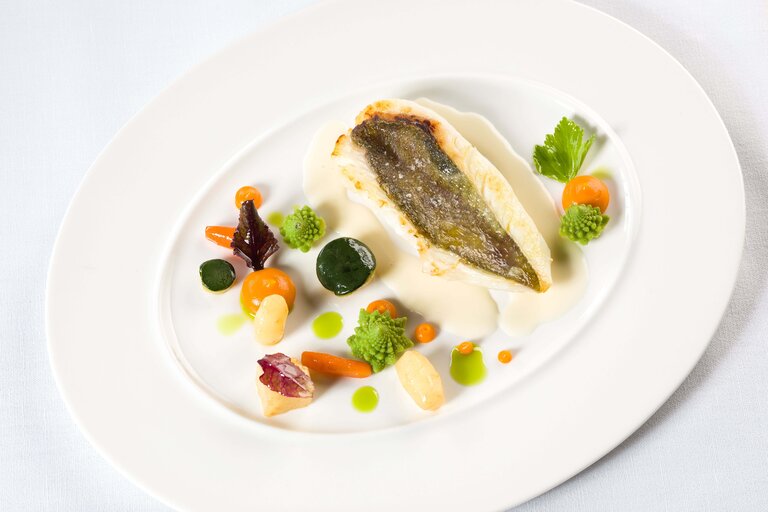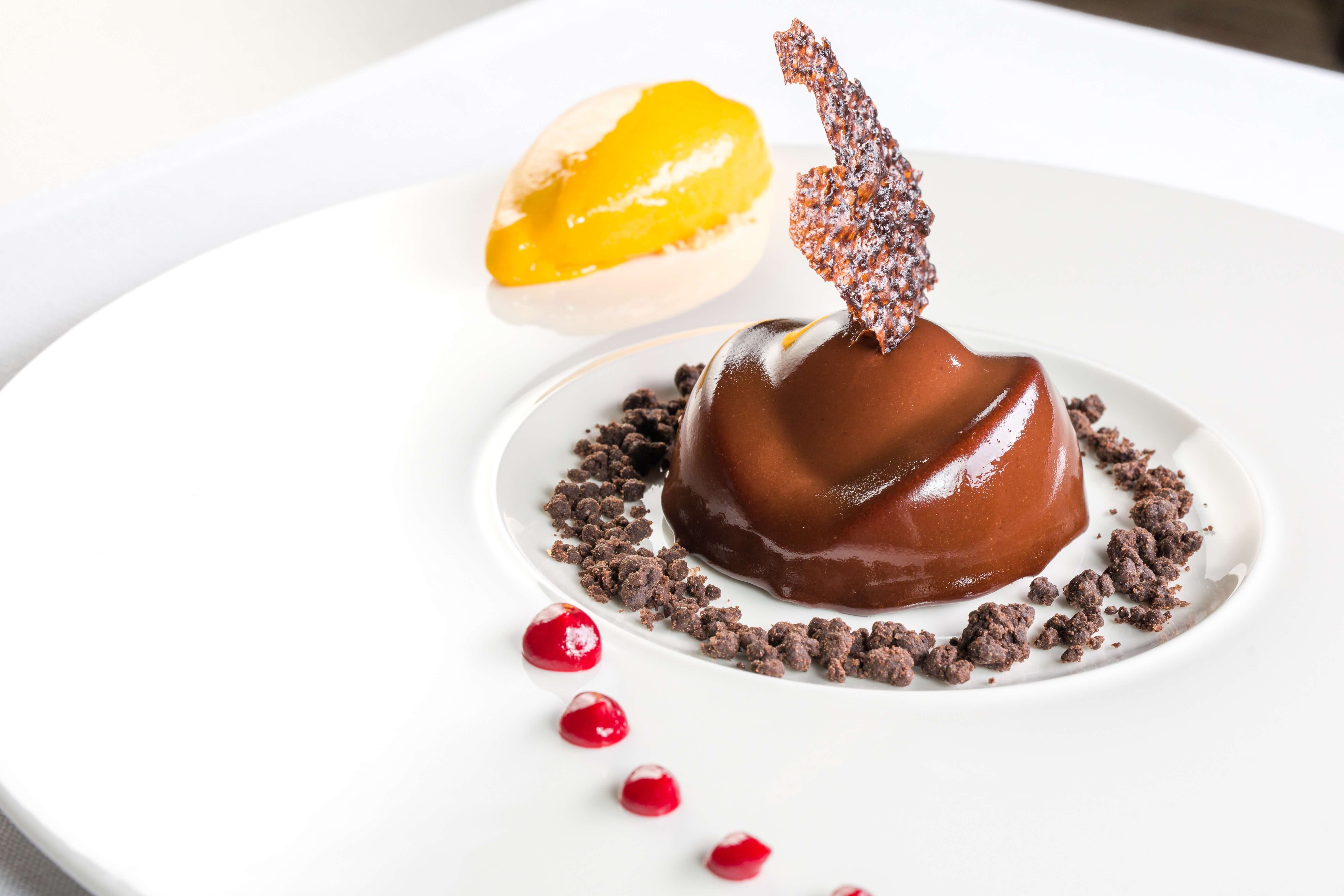August 12, 2021 - Croatian author Igor Pavela who wrote the first Croatian scientific book on hospitality, is currently waiting for the book to be translated into English. TCN reporter Ivor Kruljac met up with Pavela to discuss both the book, but also the current situation in the Croatian hospitality sector.
April 2021 saw the release of ''Excellence as a Standard in Hospitality Business'' (Izvrsnost kao standard u ugostiteljskom poslovanju), the first Croatian scientific book on hospitality in which author Igor Pavela explored what it takes to successfully run a business and ensure both an excellent offer and enjoyable atmosphere for the guests.
The book's author, Igor Pavela, has been in the hospitality business for the past 16 years. He has gained invaluable experience in various aspects and from multiple positions. Back in April, he was a manager in one of the largest American cruise ship companies and today works for the Maslina Resort in Stari Grad on Hvar island.
He has closely worked with top managers and CEOs of various big international tourism and hospitality companies in his rich career, and he also found time to train management and other employees with his educational material helping them to increase the quality of their overall standard. The educational materials Pavela has written for his training sessions eventually pushed him to write this book, now reviewed and praised by the academic community both in Croatia and in the wider region.
The book boasts a combination of his personal work experience and extensive scientific research encompassing marketing, communication and even ethics (to name just a few), and how one can go about applying it to hospitality sector success.

Maslina Resort management team. From left to right: Mario Kolumbic Maitre'D , Chris Edwardes as consultant, Igor Pavela Bar Manager © Maslina Resort
Ground rules in one place
With academic opinion being relevant for knowledge when it comes to scientific literature, Pavela, at the very start of the interview, also said that the first version of the book, which was constructed as his personal business manual, was reviewed by his close friends, colleagues, and ex-partners, all those who have been established in the hospitality business for decades.
''The first information I got as their feedback was that they'd never seen such valuable information presented in a way which is both easy to read and easy to implement. It combined the scientific research that provides the facts and my personal experience which I tried to pass on in the book like a tutor would in order to say what works and what doesn't,'' recalled Pavela.
Pavela pointed out that the hospitality sector encompasses a very broad range of occupations, and there are differences between cruise ships, fine dining restaurants, nightclubs, hotels, and other types of hospitality businesses. With that being said, there are also basic ground rules that are the same for every type of function. His colleagues who learned what works in business the usual way, by experimenting and seeing how things work out before changing and adapting things, rated the book in such a positive way, and Pavela looked more than happy with the impression his writing had had on others in his field so far.
With support from University College Aspira that both published and also held a book presentation for their former student, significant developments are happening for the book as it is currently being translated into English. With the global market not really having a scientific book of this kind under its belt yet, the options seem endless once the translation is complete. Ambitious but realistic, Pavela revealed further plans for the book.
''The book just recently came out in April (it could've come out earlier, but we waited for the unprecedented and catastrophic period for hospitality as a result of the pandemic to calm down). The translation will take around a month and a half to be completed by a professional agency that we hired, and after that, it will be reviewed. As the Croatian version was given to three doctors of science to be reviewed, it will also be reviewed by three very well-known and established names before going out onto the European market. They will, upon agreement, get an example of the book to review it and score it objectively,'' explains Pavela.
He continued by explaining that the book is now the subject of negotiations with a very known high-level sponsor in the hospitality sector. While not being able to reveal the name of the sponsor, Pavela says this sponsor plans to open an academy and to educate their staff based on Pavela's book, which is making its way to hospitality-related education in Croatia, from those in high school to those in higher levels of education. In addition, there is a plan to distribute the English version as an electronic book. The plan is to connect with big e-book distributors such as Amazon to make the book accessible globally, for students, professionals, those who want to start their business and those who are just curious readers with a desire to learn more.

© Maslina Resort
Switzerland is the place for experimental physicists thanks to CERN, Japan is doing wonders in robotics, and American and British scientists are making significant historical contributions to the fields of sociology and anthropology. Maybe this book would position Croatia as a leader in scientific observations of hospitality. When asked about this, Pavela said that it is a wonderful idea, and his greatest desire.
"My first intention when I started writing this book was to collect all global experience, which is different, if not more advanced than what is garnered in Croatia alone. I wanted to bring it home because at the end of the day, this is my home and where my heart belongs. Croatia has natural resources that need to be used more, and that also means not just promoting them, but we should be on the level required to be the high-level destination to attract high-level clients from all over the world.
I think Croatia, unfortunately for years now, hasn't been at the required level, and there has been a sea of negative comments from guests as a result. There were good sides too (tourism has been growing more and more since the Homeland War), but from the side of science, we have to see the negative sides because that's something we need to look at in our analysis and research to see what is wrong and why something is wrong so that we can work on it,'' explained Pavela.
The up-to-date research needed to scientifically and successfully explore what works and doesn't work truly needs to be constant, and the spirit of that mentality is reflected in the fact the book already has references and findings in regard to COVID-19.
Hospitality isn't just business but a purpose, too.
When it comes to things that need to be worked on, Pavela pointed out that many people in Croatia who work in hospitality are students and people who don't really take much interest and aren't really educated in the sector, thus bringing down the level of the country's hospitality services in general.
Within twenty minutes of interviewing Pavela, it became clear that he talks about hospitality with the kind of passion that isn't unusual to see among journalists or maybe even lawyers and doctors for their fields, professions who are generally quite romanticised in pop culture and where workers in the field don't view it as a job to put food on the table, but rather a call to contribute to better future. However, it is very unusual to recognise such passion for hospitality among people. How does one find such a spark in an field most people only view as a side job to achieve some higher goal? I asked.
''In one specific moment, I saw hospitality from a completely different level. I was still involved in the operational part of the industry, the back of the counter, serving and having conversations with hundreds of people every day. At one point, I had this click in my mind where I realised that just as food and water are a necessity for the body, these places of socialising are food for the soul that will not disappear even as the world changes with all this technology,'' Pavela said, recalling how he first fell deeply in love with hospitality.
He looked around the beach bar where we sat with delight, which, if more people could recognise it, would no doubt make your morning coffee in a cafe be taken in with a completely different view.
In recognising the energy which takes place when socialising after a hard day at work or school, he saw all members of the hospitality sector, from the highest decision-making managers to the waiters, as actors all involved in the collective task of making socialising as good as it can be.
''Hospitality isn't just an economic transaction of buying a product, here we offer so much more. Our service can make someone's day,'' said Pavela proudly, reminding me of how business deals, relationships, friendship and so much more is formed in a great atmosphere of hospitality service, thus really making a difference to the world.
Maslina Resort's Mediterranean John Dory © Nikola Radovani
As you read through the book, Pavela stays true to his words, pointing out good examples but also bad ones from which other employees and owners can learn what to avoid. Despite positioning some of the aforementioned negative practices to his hometown of Split and the wider Dalmatia area, Pavela at no point mentioned a specific name or a venue that fitted any negative practices. Pavela is sure this doesn't damage scientific data and gathered knowledge, and his scientific objectives are evident in him not name dropping people or places that have good practices either. In this way, he avoided the potential accusations that his book is either paid trash talk or a paid word of praise for some business, which would put a serious strain on Pavela both as a scientific observer and as a hospitality professional.
''When you're writing something like this, it's a very sensitive thing. The purpose of the book isn't to call anyone out for doing bad things, and I don't think that should be in the book. If somebody does something bad and it ends up in the news or with them being sued, then there are other ways to learn about that. The book is about focusing on changing bad practices to positive ones, and even though I had specific places and names in my head, I didn't want to bring them out and sound unprofessional,'' explained Pavela.
''What I want is for those people behind positive and negative examples to recognise themselves,'' he said.
Solidarity should trump competition when building a destination.
In the end, this book of science and practice has an aim of helping others improve their own business. That wouldn't be weird if Pavela had already retired from the business, but with his active employment for Maslina Resort, an outsider's point of view might leave you thinking whether or not it is wise to ''spill the beans'' and all the tricks of the trade as direct competitors could out beat the master as the students of his findings and knowledge. That's a very logical question from outside, but Pavela only smiled with confidence as he assured me that this book's release would neither sabotage himself nor his colleagues.
''The beautiful thing about hospitality is there is something for everyone. The more types of hospitality we have present in our destinations, the better, because opening a new bar doesn't mean stealing guests from another bar. It means offering something different. Everyone can find something for themselves. Somebody will want to hit a brew bar. Someone will want a clubbing experience, and so on. Passing on knowledge is not damaging any of the places. The point is that we all grow together in terms of quality and the commitment to what we do,'' elaborated Pavela, revealing solidarity in hospitality which is hard to deduce from the guest's point of view.
As his book clearly elaborates on, it is wrong for a hospitality owner to try to catch everything and everyone with his offer. Specialising and targeting a particular audience (e.g. those who love quality food and wine, leaving out those who want cocktail bars as you focus on improving your gastronomic offer), along with investing in quality ingredients and keeping your workers happy are the key to success, as Pavela mentioned himself. These are just a few of the points you can find in the book, but in the end, it's best you read it for yourself here. Either in Croatian or you can wait a little longer for the English version.

Maslina Resort's Chocolate Cherry Sphere © Nikola Radovani
It's worth remembering that science never sleeps, and with Pavela himself warning of this - the situation is changing constantly. Today's top formula for happy guests may be completely outdated tomorrow. Researching and learning are always welcome in order to show all those involved in this industry the way to providing the best service possible.
Learn more about Stari Grad on Hvar on our TC page.
For more about science in Croatia, follow TCN's dedicated page.


